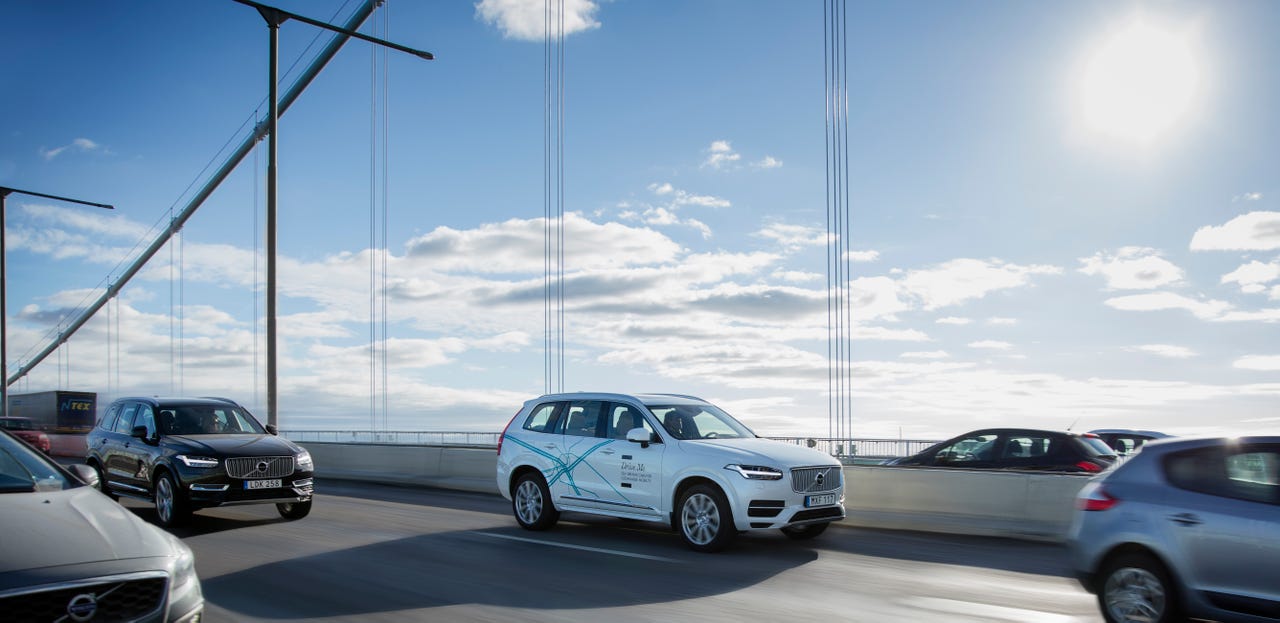Driverless cars will have fewer accidents, so what does that mean for insurers?


Volvo claims that autonomous cars are "the single most important advance in automotive safety to be seen in recent years".
Volvo president and chief executive Håkan Samuelsson has argued that the introduction of autonomous vehicles will represent "the most important advance in automotive safety to be seen in recent years" and that the sooner driverless vehicles are on the roads, the more lives will be saved.
Research by Swiss Re and Here appears to back up the claims, with figures in a newly released report suggesting that autonomous vehicle technology will reduce the number of accidents by 80 percent -- and that those accidents which still occur will be much less severe because connected cars can take avoiding action.
Speaking at an insurance industry seminar in London, Samuelsson argued that even though the insurance sector is likely to take a financial hit from the introduction of driverless cars, it's a price very much worth paying for the improvement in road safety.
"The medium to long-term impact on the insurance industry is likely to be significant. But let's not forget the real reason for this -- fewer accidents, fewer injuries, fewer fatalities. Autonomous driving cars are the single most important advance in automotive safety to be seen in recent years," he said.
Volvo is already putting significant resources into research and development of driverless cars -- with autonomous vehicles to be tested on the streets of London and the roads of China from next year -- but the Swedish manufacturer has called for government to work alongside industry in order introduce true self-driving technology sooner rather than later, arguing that it'll reduce fatalities.
"The automotive industry cannot do this on its own," said Samuelsson "We need the government's help. It is essential that carmakers work with the government to put in place laws and regulations that allow us to get these cars on the road as soon as possible and start saving lives."
The report by Swiss Re and Here, titled The Future of Motor Insurance, said autonomous driving and increasingly sophisticated driver-assist technologies will "lead to significantly improved road safety".
"Vehicle-to-vehicle (V2V) and vehicle-to-infrastructure (V2I) data transmission will inform drivers of hazards and dangerous situations they would not normally notice, prompting them to take evasive action," the report said. It added that by 2035, "combined V2V and V2I systems potentially address about 81 percent of all-vehicle target crashes; 83 percent of all light-vehicle target crashes; and 72 percent of all heavy-truck target crashes annually".
According to Peter Shaw, chief executive at Thatcham Research Centre, an organisation which specialises in vehicle safety research, true driverless vehicles could be helping to reduce accidents within the next five years.
"Vehicle manufacturers are predicting that highly autonomous vehicles, capable of allowing the driver to drop 'out of the loop' for certain sections of their journey, will be available from around 2021. Without doubt, crash frequency will also dramatically reduce," he said and argued that driverless technology will also reduce the severity of any crashes which still occur.
"Additionally, if a crash unfortunately can't be avoided, then the impact speed will also drop as a result of the system's performance, reducing the severity of the crash," Shaw added.
"The advent of autonomous driving represents a revolution for automotive safety. Volvo has a vision that no one will be killed or seriously injured in a new Volvo by 2020. Autonomous driving is a key tool in helping us achieve this aim," Samuelsson said.